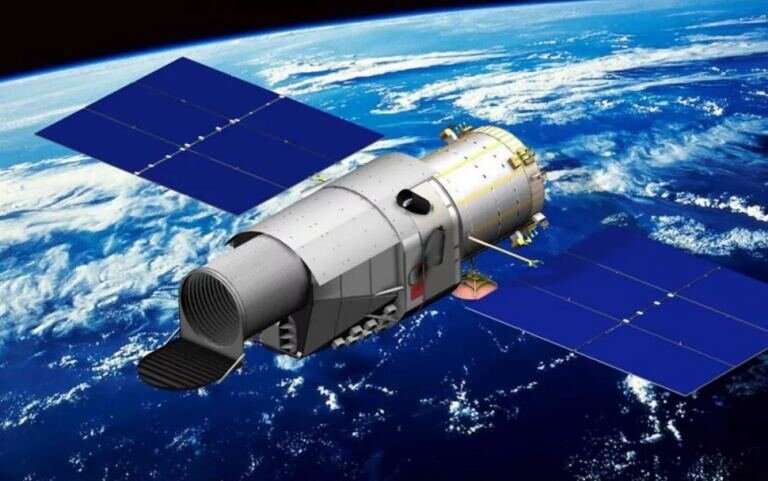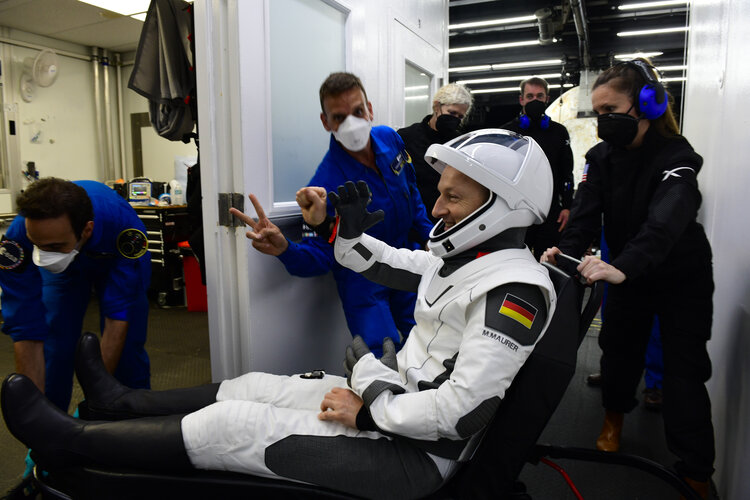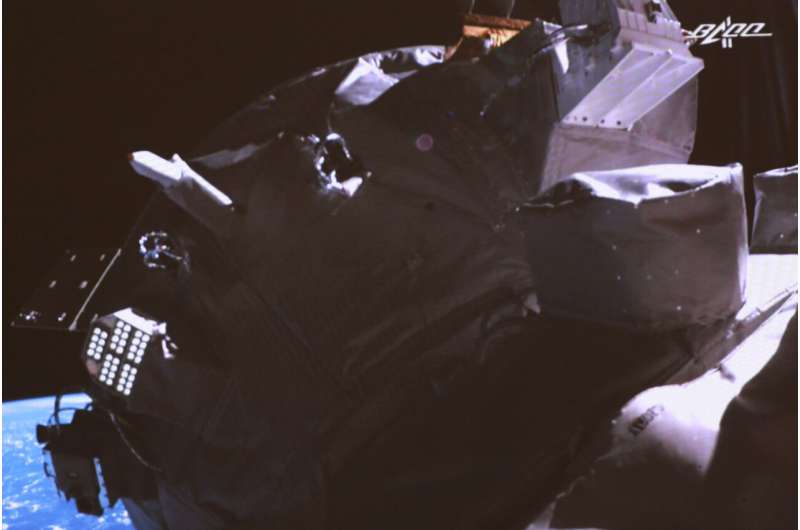
Copernical Team
Xona passes critical testing milestone as private GNSS readies for launch
 Xona Space Systems, the aerospace startup developing a precision navigation and timing system in low Earth orbit, has announced that their first in-space demonstrator has been delivered to Spaceflight Inc. for final integration after successfully completing testing and is scheduled for launch on SpaceX's Transporter 5 in May. Xona is building the first ever independent high-performance satellite
Xona Space Systems, the aerospace startup developing a precision navigation and timing system in low Earth orbit, has announced that their first in-space demonstrator has been delivered to Spaceflight Inc. for final integration after successfully completing testing and is scheduled for launch on SpaceX's Transporter 5 in May. Xona is building the first ever independent high-performance satellite China's cargo craft docks with space station combination
 In the latest stage in its space station program, China launched the Tianzhou 4 cargo spacecraft early on Tuesday morning, to transport fuel and supplies to its Tiangong space station, according to the China Manned Space Agency, or CMSA.
In a brief statement, the agency said that a Long March 7 carrier rocket blasted off from the Wenchang Space Launch Center in Hainan province at 01:56 am,
In the latest stage in its space station program, China launched the Tianzhou 4 cargo spacecraft early on Tuesday morning, to transport fuel and supplies to its Tiangong space station, according to the China Manned Space Agency, or CMSA.
In a brief statement, the agency said that a Long March 7 carrier rocket blasted off from the Wenchang Space Launch Center in Hainan province at 01:56 am, China announces its new flagship space telescope mission

Distant galaxies, dark matter, dark energy and the origin and evolution of the universe itself are some of the many scientific goals of China's newly announced space telescope. If all goes according to plan, the China Space Station Telescope (CSST) will blast off atop a Long March 5B rocket sometime in late 2023. Once in a safe orbit, CSST should begin observations in 2024. Judging by these research topics, it looks like the Chinese Academy of Sciences is throwing down an impressive scientific gauntlet for itself and its astronomers.
What it means to have a space telescope
Owning and operating a space telescope really opens the doors to a treasury of information about the universe. Certainly, that's what motivated the creation of the Hubble Space Telescope (HST). The dream of cosmic exploration motivated Hermann Oberth in the 1920s to write semi-science-fictional treatises about orbiting telescopes on asteroids.
Watch live: press conference with Matthias Maurer back on Earth

ESA astronaut Matthias Maurer is back in Europe after 177 days in space. Watch the first press conference following his Cosmic Kiss mission at 11:45 CEST (10:45 BST) 11 May live on ESA Web TV.
Supplies launched to China's new space station for next crew

China launches the Tianzhou 4 cargo spacecraft
 In the latest stage in its space station program, China launched the Tianzhou 4 cargo spacecraft early on Tuesday morning, to transport fuel and supplies to its Tiangong space station, according to the China Manned Space Agency, or CMSA.
In a brief statement, the agency said that a Long March 7 carrier rocket blasted off from the Wenchang Space Launch Center in Hainan province at 01:56 am,
In the latest stage in its space station program, China launched the Tianzhou 4 cargo spacecraft early on Tuesday morning, to transport fuel and supplies to its Tiangong space station, according to the China Manned Space Agency, or CMSA.
In a brief statement, the agency said that a Long March 7 carrier rocket blasted off from the Wenchang Space Launch Center in Hainan province at 01:56 am, Plans unveiled to better connect space industries in Scotland and the UAE
 Globally focused strategic space marketing firm AstroAgency, headquartered in Edinburgh, has announced it will team up with a Dubai-based space investment and advisory company AzurX, to support space businesses in both regions, access new development opportunities and forge collaborative partnerships.
The two organisations boast a global space client base, with AzurX acting as the trusted
Globally focused strategic space marketing firm AstroAgency, headquartered in Edinburgh, has announced it will team up with a Dubai-based space investment and advisory company AzurX, to support space businesses in both regions, access new development opportunities and forge collaborative partnerships.
The two organisations boast a global space client base, with AzurX acting as the trusted Rocket Lab launches BRO-6 for Unseenlabs
 Unseenlabs, the European leader in radio frequency (RF) signals detection from space, successfully launched its seventh satellites dedicated to the geolocation of vessels at sea on may 3, with rocket lab launcher. In total, Unseenlabs has deployed seven satellites since 2019 and will launch other satellites in 2022.
Unseenlabs' constellation is designed to provide clients with data to foll
Unseenlabs, the European leader in radio frequency (RF) signals detection from space, successfully launched its seventh satellites dedicated to the geolocation of vessels at sea on may 3, with rocket lab launcher. In total, Unseenlabs has deployed seven satellites since 2019 and will launch other satellites in 2022.
Unseenlabs' constellation is designed to provide clients with data to foll Sliding Into the Weekend Like - Sols 3466-3468
 It's been a challenging week in Gale crater, but Curiosity and the rover team are ready to put those challenges behind us as we head into a busy weekend plan. I've been on shift as LTP and SOWG Chair this week, and we've had a handful of issues related to difficult terrain, being in a good orientation for communication, and having small downlink volumes available for planning.
Today was a
It's been a challenging week in Gale crater, but Curiosity and the rover team are ready to put those challenges behind us as we head into a busy weekend plan. I've been on shift as LTP and SOWG Chair this week, and we've had a handful of issues related to difficult terrain, being in a good orientation for communication, and having small downlink volumes available for planning.
Today was a NASA's InSight Records Monster Quake on Mars
 NASA's InSight Mars lander has detected the largest quake ever observed on another planet: an estimated magnitude 5 temblor that occurred on May 4, 2022, the 1,222nd Martian day, or sol, of the mission. This adds to the catalog of more than 1,313 quakes InSight has detected since landing on Mars in November 2018. The largest previously recorded quake was an estimated magnitude 4.2 detected Aug.
NASA's InSight Mars lander has detected the largest quake ever observed on another planet: an estimated magnitude 5 temblor that occurred on May 4, 2022, the 1,222nd Martian day, or sol, of the mission. This adds to the catalog of more than 1,313 quakes InSight has detected since landing on Mars in November 2018. The largest previously recorded quake was an estimated magnitude 4.2 detected Aug. 